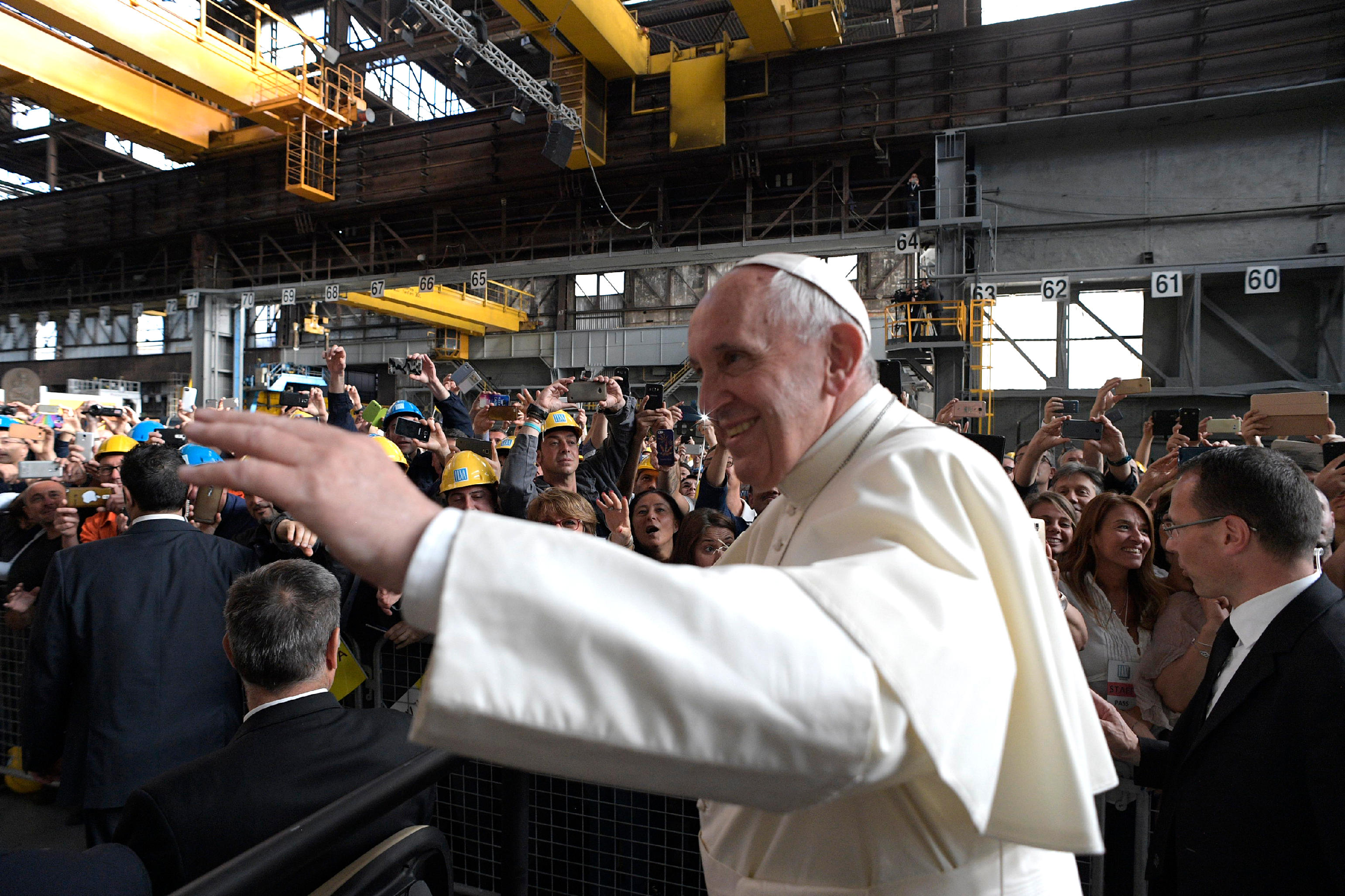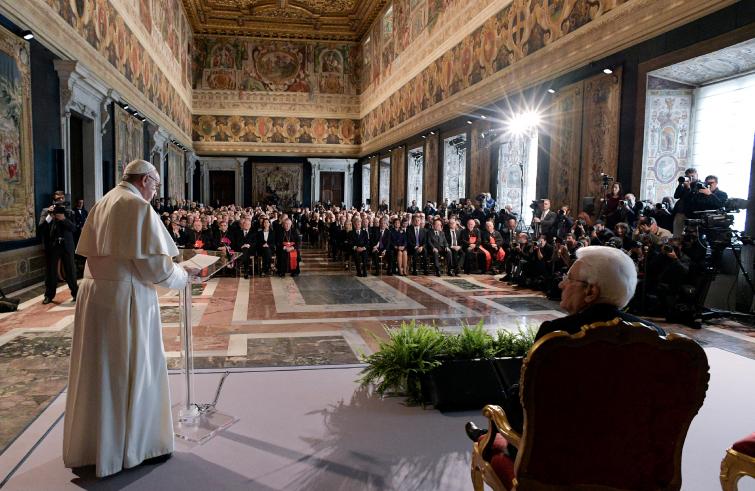Social Weeks
Dignity: this key-word summarizes Pope Francis’ recent speeches on the theme of employment. Follows an overview of those reflections ahead of the Social Week of Italian Catholics scheduled to take place in Cagliari at the end of October

“The veritable goal needing to be achieved is not income for all but work for all.” The Pope’s words delivered on May 27 in Genoa to 3500 Ilva steel factory workers, near the port from where his parents left for Argentina in search of fortune, were already memorable. A month later, on June 28, speaking to CISL delegates, Francis addressed the themes mentioned in Genoa with one-hour-long impromptu remarks to workers, calling for a “new social contract for labour” that may balance out the future of the young and old generation. Bergoglio has considered labour a priority-theme since the beginning of his Pontificate, as stated in Evangelii gaudium, that depicts the condition of contemporary men and women faced with daily precariousness, whose baneful consequences fuel the “globalization of indifference” and result in the “throwaway culture.” A change of course – the Pope suggests also to the Italian Church, engaged in preparations for the upcoming Social Week in Cagliari – requires a new culture of work, starting with the poignancy of the term “dignity”, cornerstone of the social doctrine of the Church echoing hope and encompassing the flair of the future along with a past of noble achievements, which, although needing to be updated, should never be forgotten or betrayed.
“Work today is at risk. A world where work is not considered with the dignity that it has and gives.”
It is no coincidence that in his first address during the pastoral visit to Genoa the Pope said: “Work is a human priority, and because of this, it’s a Christian priority.” This postulation enshrines the very essence of the whole speech. The first warning is addressed to entrepreneurs, a fundamental part of every good economy, provided they don’t become speculators.

“Men and women are fed through work; by work they are anointed with dignity”,
the Pope said, who went on to mention Art.1 of the Italian Constitution. He warned: “taking work away from people or exploiting people with work that is unworthy, or poorly-paid or whatever, is unconstitutional.” Hence “Work for all” must replace the slogan “income for all.” The choice is between living and surviving.
“Without work, you can survive; but to live, you need work.”
Francis is not afraid of criticising forms of “political correctness”: competition within the company, he said, besides being an anthropological and Christian error, is also an economic mistake, and so is the so-called “meritocracy”, exploited and used ideologically on far too many occasions, thereby becoming a way of ethically legitimizing inequality. Not all jobs are good, there is still too much bad work without dignity. A paradox which for Francis is the result of having subjected work to consumption:
“If we sell out labour for consumption, with work we will soon sell out these accompanying words: dignity, respect, honour, freedom.”
The speech to Cisl focuses on the need for a new social pact between old and new generations; between the grandparents and their grandchildren. It is yet another theme that the Argentine Pope has at heart: “It is a distorted and short-sighted society that compels the elderly to work too long and obliges an entire generation not to work when they should do so for themselves and for all.” In order not to seriously jeopardize the future, it is urgent to form
“a new, human social pact, a new social pact for labour, that reduces working hours for those who are in the last working phase of life, to create work for the young who have the right and duty to work.”
“Golden pensions” are no less an offence to labour than pensions that are too low, as they ensure that that inequalities during the time of work become permanent.

Also during his visit to the President of Italy Mattarella at the Quirinale Pope Francis reiterated the importance to protect labour from speculative investments. For Francis, the dignity of the human person, the family, work, are the primary exemplary values of Italy. Among the priorities of domestic policies, shortly after the visit to Genoa, work is once again presented as one of paramount importance.
“I reiterate the call for generating and accompanying processes that give rise to new decent working opportunities.”
Multi-faceted forms of poverty are the result of injustice and moral degeneration, of the greed of a chosen few, and generalized indifference, he denounced in the Message for the First World Day of the Poor which this year will be celebrated on November 19. Poverty is a scandal, Francis warned, we cannot remain indifferent before “a poverty that stifles the spirit of initiative of so many young people by keeping them from finding work.”
“There is no true peace whenever people are cast aside or forced to live in dire poverty”,
he said, this time calling into question all of Europe, in his address to the Heads of Government and State of the EU in Italy for the celebration of the 60th anniversary of the Treaty of Rome.